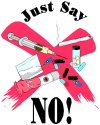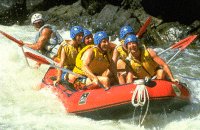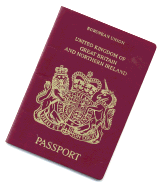Accidents and injuries account for a significant number of health problems for travellers abroad.
Most deaths in travellers relate to what they do rather than what they catch.
Up to a third of all reported medical cases are due to avoidable accidents.
All travellers should take out health insurance to cover accidents as well as illness and should check that emergency repatriation expenses are covered. |
Accidents commonly occur on the roads, when swimming and during sporting activities such as skiing, climbing, rafting, cycling, etc.
A sense of excitement induced by travel to exotic locations may lead to normal safety precautions being overlooked. This is exacerbated by alcohol.
Being aware of any possible risks and avoiding predictable injury should always be the traveller's first priority. |
|
|
ALCOHOL & DRUGS
|
 The risk of an accident occurring is exacerbated by alcohol. It is easy to drink too much alcohol in a hot climate. Locally brewed drinks are often stronger than one might expect. The risk of an accident occurring is exacerbated by alcohol. It is easy to drink too much alcohol in a hot climate. Locally brewed drinks are often stronger than one might expect.
 The possession of illicit drugs in some countries carries very severe penalties. Don't be tempted, it's not worth it. The possession of illicit drugs in some countries carries very severe penalties. Don't be tempted, it's not worth it. |
|
Hotels in some countries may be built to poor standards and have inadequate fire escapes. You should always check to see where the emergency exits (if any) are located. Gas and electrical appliances may in a dangerous condition. Balconies and staircases may be unsafe.
Fire is a significant cause of death and injury abroad. In many countries, fire regulations are slack or non existent. Never smoke in bed and ensure that cigarettes are properly extinguished. Remember, smoke inhalation can also be fatal and the best way to avoid it is to crawl low under the smoke.
PERSONAL SECURITY
 To reduce any risk of mugging, travel in groups, avoid remote areas after dark, use a torch, keep on the move, carry an alarm or an anti-personnel spray (this maybe illegal in some countries, so it is advisable to check first), wear modest clothing, do not display wealth. To reduce any risk of mugging, travel in groups, avoid remote areas after dark, use a torch, keep on the move, carry an alarm or an anti-personnel spray (this maybe illegal in some countries, so it is advisable to check first), wear modest clothing, do not display wealth.
Many areas are not safe to wander around at night, including those that look safe by daylight. While driving, consider locking your car doors at stopping points especially at night in isolated areas.
Be aware of political unrest. Up-to-date information is available from the Foreign and Commonwealth Office online or over the phone. Main switchboard :- 020 7008 1500 or Travel advice line :- 0870 6060290. Do not rely on information from local residents.
In some countries, producing cameras, tape recorders etc in sensitive areas, such as near airports and railway stations, can result in arrest on suspicion of spying.
 ROAD SAFETY ROAD SAFETY
Road accidents are responsible for more deaths amongst tourists than any of the diseases mentioned on this site.
When crossing the road remember the traffic may come from the opposite direction to the one in your home country.
Drivers in many countries do not observe pedestrian crossings or traffic signals.
TRANSPORT
Whilst receiving wide publicity, accidents in the air and on ships are extremely rare. Ferries in developing countries are often overcrowded and carry inadequate safety equipment.
 Trains and buses are often overcrowded. You should think twice about taking an overloaded up-country bus and avoid local habits like travelling on the roofs of trains and busses and jumping on and off whilst they are moving. Motor vehicles may be poorly maintained. Check over any hire vehicle very carefully for mechanical defects especially brakes and tyres. Trains and buses are often overcrowded. You should think twice about taking an overloaded up-country bus and avoid local habits like travelling on the roofs of trains and busses and jumping on and off whilst they are moving. Motor vehicles may be poorly maintained. Check over any hire vehicle very carefully for mechanical defects especially brakes and tyres.
When you are driving, always wear a safety belt, strictly observe speed limits, traffic lights and signs. Never drink and drive.
 Local drivers may not observe traffic rules but you always should. Remember, in some countries they drive on the right, it is easy to forget. Local drivers may not observe traffic rules but you always should. Remember, in some countries they drive on the right, it is easy to forget.
Be very careful on potholed and 'dust' roads which can become badly eroded from continual exposure to the elements.
Scooters and motorcycles are frequently unstable on poorly maintained roads and those riding have very little protection in the event of an accident. Always wear a safety helmet.
 WATER HAZARDS WATER HAZARDS
Alcohol and swimming do not mix!
Beware of fast moving tides and currents, especially the undertow from waves in deep water where even strong swimmers may find it difficult to get back to the shore.
Avoid swimming alone. Swim in approved places where there is a beach patrol or lifeguard service. Always wear proper life jackets when taking part in certain types of water-sports like sailing, windsurfing, canoeing etc. Sunburn is common and may be unexpected since the swimmer is kept cool by the water.
 Avoid using airbeds or inflatable dinghies in the sea. If there is an offshore wind, they can easily been blown a long distance offshore. If this happens, the scenario is often panic, jumping off, exhaustion and hypothermia. Invariably it is better to stay 'aboard', try to attract attention and await rescue. Avoid using airbeds or inflatable dinghies in the sea. If there is an offshore wind, they can easily been blown a long distance offshore. If this happens, the scenario is often panic, jumping off, exhaustion and hypothermia. Invariably it is better to stay 'aboard', try to attract attention and await rescue.
Water is the home of some very dangerous creatures like crocodiles, hippos and sharks. Sea creatures like urchins, jellyfish, molluscs or fish may be unexpectedly venomous. Be aware of local dangers.
 Do not swim immediately after a big meal when cramp is more likely to occur. Low water temperature can induce hypothermia which can be fatal - within minutes. Do not swim immediately after a big meal when cramp is more likely to occur. Low water temperature can induce hypothermia which can be fatal - within minutes.
Both the sea and inland deep water lakes may be very cold even during hot summer months.
Visibly dirty recreational water in pools, lakes and rivers especially in the tropics should be avoided. There is always a danger of contracting water-borne diseases like shistosomiasis or leptospirosis in these areas.
Foot injuries on beaches are common for those not wearing shoes.
 OUTDOOR ACTIVITIES OUTDOOR ACTIVITIES
Pursuits such as scuba diving, mountain climbing, whitewater rafting and hang gliding can be dangerous. Additional insurance may be required for these and similar activities.
Get physically fit in advance of your trip. Do not be over ambitious - make sure you are fully trained for the degree of skill required.
 Avoid excessive fatigue - accidents often occur before lunch and in the evening. Keep up your carbohydrate and fluid intake. Avoid excessive fatigue - accidents often occur before lunch and in the evening. Keep up your carbohydrate and fluid intake.
If you are travelling in mountainous areas, become familiar with the terrain and the hazards involved, including avalanche potential. Observe adverse weather warnings.
Do not 'economise' on protective clothing, boots and safety equipment.
In snow conditions, watch out for skiers and snowboarders. It is your responsibility to avoid skiers in front of you.
 Consider helmets for younger skiers and snowboarders. Consider helmets for younger skiers and snowboarders.
Skiers should learn to fall correctly and to release your ski stick before it causes skiers thumb!
Serious injuries that may require a blood transfusion can be of concern where HIV screening of blood products is not universal.
Skin injuries can lead to tetanus and therefore, ten yearly boosters of tetanus toxoid are advised before traveling to many countries. |
Our skin provides defence against the bugs that lead to infection. A cut or graze could allow bugs in. If a wound is bleeding, apply pressure for as long as it takes to stop. This may be as long as 15 minutes. If the bleeding continues, continue to apply pressure and seek medical advice. Bleeding from points below the heart can be greater, so you can help to reduce the bleeding by lifting the affected limb above the level of the heart at the same time. Next, clean the wound using an antiseptic solution (salt water if none available) and apply a clean dressing to prevent contamination with bugs. You may need to consider other risks, such as HIV and Hepatitis B, if applicable. Tetanus is a risk, if you have not been immunised or not had a booster within 10yrs. If the wound gets more painful, or surrounded with an increasing area of "redness" and swelling, or if it discharges coloured pustular fluid as the days go by, this could be a sign of infection. If you are concerned or an infection develops, you should see a doctor because you might need antibiotics.
A deep vein thrombosis is due to a blood clot in a vein. "Economy class syndrome" is a misnomer - the problem is not restricted to economy class, nor flying in general. Thrombosis can occur anywhere in the body, but clots in the deep veins of the calf muscle (below the knee at the back of the leg) are what are termed "DVT". The classical symptoms are those of swelling in one leg (if you press hard with a finger, it will leave a dimple when the finger is removed), pain, redness and heat in the muscle. A DVT in one leg will not produce symptoms in the other leg - so, DVT usually leads to symptoms in one leg rather than both (unless, by chance you have contracted DVTs in both legs at the same time). In other words, one leg appears more swollen that the other. Often, the calf muscle may also feel hard. Sometimes dorsiflexing the foot (the same movement that you make with your ankle if you were lifting your foot off the accelerator of your car) may produce pain in the calf. A DVT may present with some, all or none of these symptoms. Other conditions may produce similar symptoms (muscle strains, skin infections and rupture of cysts behind the knee). A DVT can be fatal. If you are concerned that you may have a DVT you should see a Doctor immediately. The following can be risk factors for developing a DVT:
- Dehydration, immobility, pregnancy & "the pill", cardiovascular disease (including stroke).
- Malignancy, recent major surgery, low oxygen pressure in aircraft, tight restrictive clothing.
There are a number of things that you can do to reduce your chances of getting a DVT:
- Exercise your calf muscles regularly. DVTs occur more often when people are immobile (sitting around, on a long plane, bus, car or coach journey). Either get up and walk at regular intervals or exercise your calf muscles (as if alternately pressing the brake and accelerator pedals of a car repeatedly with both feet) at regular intervals.
- Dehydration increases the risk. Drink lots of water. Alcohol may stimulate urination, so it's not a good way of rehydrating yourself. Water and non-alcoholic drinks are best. Remember that "diuretics" or "water tablets" may lead to loss of fluid from the body. People become dehydrated quicker in hotter climates.
- Wearing specially produced compression stockings may help.
- Aspirin (provided there are no medical reasons why you should not take it) may help. There is debate as to what is the ideal dose. People who have (or have had) stomach ulcers or asthmatics (to name only a few conditions) may not be able to take Aspirin. PLease consult your doctor for more information before starting any medication.
- Some people are more prone to developing thrombosis. Obviously, if there is a family history, you may be at a higher risk. Oestrogen hormones may increase the risk. Since oestrogens are found in the "Combined" oral contraceptive pill, this may increase your risk. There are no oestrogens in the "Mini (progesterone only) pill". DVT tends to be a disease that affects adults and more so as people get older. The author of this article has never heard of a DVT occurring spontaneously in a child. However, if you are concerned about DVT in any age group, see a Doctor immediately.
A House of Lords Select Committee carried out a comprehensive review of the subject in November 2000. They concluded that the risk of developing DVT following a long distance flight is estimated to be between 0.1 and 0.4 per thousand of the general population. Please follow all instructions given to you aboard long haul flights.
Any illness contracted will pose a greater threat to diabetics, whether diarrhoea, infections, malaria or seemingly minor illness. You should be especially careful to prevent any illnesses. In particular, you should be up to date with all of your immunisations and you should have a very low threshold for seeing a doctor if you become unwell. Make sure that you have adequate supplies of needles, syringes and insulin in your hand luggage. Blood sugar testing machines (and spare batteries!) are a good idea. Insulin may remain stable at room temperature for one month, but it may be destroyed by freezing (as can happen in the cargo hold of an aeroplane). Unaccustomed exercise in a different climate (or unexpected delays) may make your blood sugar drop quicker than it does at home, so you should always carry a supply of carbohydrate to stave off hypoglycaemic attacks. If your journey lasts less than 8 hours, you may wish to stick to your home time management of your diabetes. For long journeys, work out changes to your insulin regime well in advance by consulting diabetic clinic. Make sure that you have comprehensive travel health insurance that covers diabetic patients.
Diarrhoea means passing frequent loose, watery stools. Most cases of diarrhoea are due to infectious causes. In other words, you may have taken bacteria or viruses by mouth (from dirty hands, food or drink). Prevention is better - bottled "safe" water for drinking, washing food and brushing teeth, hand washing and clean all vegetables & fruit (bearing in mind the safety of the water used to clean the food!). Our bodies may try to get rid of these bugs by trying to eradicate them from the bowel as quickly as possible. This may lead to vomiting and diarrhoea. The most important thing here is to replace fluids. Drink as much as you can - "little & often" if you cannot tolerate large volumes. In addition to fluids, you may lose essential salts from the body. It is possible to replace fluids and salts by drinking special rehydration drinks - "Dioralyte" and "Electrolade" are two examples. These may be purchased from the chemist before you go (or they may be available abroad. If not, the local pharmacist may be able to offer a similar product). Don't worry if you cannot tolerate food. In the short term, fluids are much more important. It may be best to avoid dairy products, because some diarrhoeal illnesses can temporarily affect our ability to digest "lactose", which is a sugar found in dairy products. If you are lucky, you may be able to flush out the bugs by taking lots of fluids by mouth. Sometimes, this is not possible and some infections may need specific treatment - again, if you are concerned, the diarrhoea is prolonged (72hrs in a fit adult, but as little as 24hrs in the elderly or child), or the patient is listless and drowsy, feverish, blood in the diarrhoea, then do not hesitate to see a doctor (as you would if you were at home). Some products sold over the counter have the effect of "stopping" or slowing down the diarrhoea. Although controversial, this may impair your body's attempts to "flush out" the bugs. If the cause is an infectious diarrhoea, you may be better avoiding these products and drinking as much as you can. Again, children (& babies) and the elderly can be particularly susceptible to diarrhoea - have a low threshold for seeing a doctor if you are at all concerned.
The Aims of First Aid
- To preserve life
- To limit the effects of the condition
- To promote recovery
Accidents requiring first aid treatment are by their very nature, unpredictable. In an emergency situation requiring first aid, the first step is to call for or seek properly trained medical help if available. The idea of first aid is to keep a casualty comfortable until medical help arrives or is attained.
The subject of First Aid covers a wide variety of topics too extensive to be mentioned in this site. Information can be better obtained from a first aid manual or better still by receiving proper training. The purpose of this page is not to teach first aid but to make the reader aware of the importance of having some knowledge of first aid techniques.
All travellers should carry a first aid kit the exact contents of which will be determined by the nature of the trip and the area and activities undertaken.
Those who travel to remote areas on adventure holidays or expeditions should seriously consider becoming proficient in and obtaining a first aid qualification from a recognised organisation such as St. Johns Ambulance or the Red Cross. Courses in first aid are run locally in most areas.
It is also important that you take adequate personal medications relevant to the area and activity undertaken.
Those venturing away from good medical facilities will need to take a first aid kit, a sterile pack containing needles and syringes and extra medical items such as antibiotics, strong pain killers and other emergency treatments.
Other useful items include; water purification tablets, a sun-block and some insect repellent.
Remember, you should always seek medical advice when possible for anything more than simple complaints.
An allergy to pollens - can include tree pollens as well as grasses and flowers. Tree pollen allergy can occur early (March) in the year. Symptoms include itchy, watering eyes, nose and a cough. Mainstay of treatment is with antihistamines (see above) in the form of eyedrops, nasal spray and/or tablets. Generally speaking, tablets tend to be more potent and have a widespread action. It is also possible to use a steroid spray e.g "Beconase" (Beclomethasone), but this may take several days to achieve full effect (up to 14 days or longer). These treatments are available over the counter at the Chemist. Be careful if you are driving - some medicines may make you feel drowsy.
Remember that you have access to an NHS GP wherever you are in the UK. Simply contact the nearest GP (even if you need a doctor out of hours) and they may look after you as a "Temporary Resident". If you have unexpectedly run out of tablets, you may be able to get an emergency supply from the chemist if you take the empty packets and identification along with you.
Insect bites usually produce multiple itchy bumps a few millimetres in diameter. You may ease the symptoms by using an antihistamine cream or tablets. Common antihistamines are "Piriton" (chlorpheniramine), "Clarityn" (Loratadine) and "Zirtek" (Cetrizine). Be careful if you are driving - some medicines may make you feel drowsy.
Obviously, remember to take plenty of medicine with you, taking into account possible delays. Remember that the cargo hold of the plane may be cold enough to have a detrimental effect on your medicine - including insulin for diabetics. It may be better to keep your medicine in your hand luggage and keep it with you at all times. Paracetamol is very, very useful if you need it - particularly if you have children! You may wish to take a supply of "Calpol" (paracetamol) with you "just in case".
If you have had a heart attack (myocardial infarction) you should not fly within two to four weeks, depending on severity. A patient who has had ear surgery should not fly within two months. If you have a perforated eardrum, you should wait until it has healed completely before flying. Surgery involving a body cavity (such as chest or abdomen) or pneumothorax ("collapsed lung") should not travel for at least three weeks. If you have chronic obstructive airways disease or emphysema, you may need supplementary oxygen during the flight and you should discuss the matter in detail with the airline and your doctor beforehand. Patients treated for cancer with chemotherapy or radiotherapy should not have "live" vaccines until 6 months after the end of treatment. Of course, all of this advice is very general and you should discuss your exact individual requirements with your own Doctor well in advance of making plans to travel. Make sure that you have comprehensive travel health insurance and that it covers all pre-existing conditions.
Remember R.I.C.E. - Rest, Ice, Compression with a bandage or "tubigrip" and Elevation of the limb. If the patient is unable to move the limb, weight bear or if there is obvious deformity, then there could be a broken bone.
First of all, try not to get burnt at all! Prevention is all important in the case of sunburn. There is clear evidence that sun exposure can increase the chance of developing cancerous lesions, including "malignant melanoma". This may be even more important when children become sunburnt.
- Avoid going out in the midday sun.
- Use a high protection factor (30+) sun screen, applied thickly and re-applied regularly. Pay particular attention to the tops of the ears, "mask" area of face, nose, shoulders. Re-apply if going into water etc. Remember sunblock for lips and glasses for eyes.
- Cover up with a hat and clothing - bear in mind that a thin shirt may not provide full protection and you may still need to cover completely with sun screen. Children and babies are at a particular risk.
- Keep in the shade - but remember that you may still burn - including on cloudy days!
- Drink plenty of fluids. Water is best. Avoid alcohol, because it is a diuretic. This means that alcohol will stimulate your kidneys to produce urine - so you may lose more water from the body if you drink alcohol (it's not a very good way of rehydrating yourself!). If you drink alcohol, remember to drink plenty of water to overcome the diuretic effect.
If you have already burnt, then there are a few thing you can do to make yourself comfortable.
- Drink lots of water to rehydrate.
- Calamine lotion can be soothing when applied to the skin. An antihistamine cream may help.
- Because the skin's surface is red and the fine vessels in the skin are dilated, there may be several consequences. First you may evaporate fluid (this is why you need fluids) and second, you could lose your body heat and become very cold.
- Remember that, if severe, sunburn can actually be very dangerous - particularly in the elderly and very young. If the patient becomes very drowsy or listless or your own common sense tells you that they are very unwell, then do not hesitate to see a Doctor.
You should not travel abroad whilst pregnant if you have a history of miscarriage, premature labour, vaginal bleeding in pregnancy or "pre-eclampsia" (a condition where blood pressure goes up to dangerous levels). Airlines are generally reluctant to accept a woman who is more than 32 weeks pregnant - check with your individual airline (and check that you have a seat with enough room!). You will be at an increased risk of DVT (see above). You should carry comprehensive documentation including estimated date of delivery and blood type. Check that you have valid travel health insurance covering duration of the pregnancy, complications, delivery and the postpartum (i.e. after delivery) period. Also check that this policy covers the newborn and that repatriation is available and covered, if necessary. If traveling to an endemic area, the risk of malaria is significant and potentially very serious for both mother and baby during pregnancy. You must weigh up the risk/benefit of antimalarial medication, but Chloroquine and Proguanil have been prescribed safely in pregnancy for many years (your doctor may recommend taking Folic acid 5mg on alternate days if you are taking Proguanil). Generally speaking, "live" vaccines should be avoided in pregnancy but "inactivated" vaccines (such as Hepatitis A, Typhoid and Tetanus) may be given safely, preferably during the second and third trimester of pregnancy if there is a significant risk of contracting these illnesses. Remember that the illnesses themselves may be more dangerous to you and your baby than the risks of any medication.
Treatment is usually with an anti-emetic pill (e.g. "Stemetil"). Some may have a sedative effect. Be aware, if you are driving, that this treatment might make you feel drowsy. Eating "little and often" may be better than large, fatty meals.
Always take out travel insurance well in advance of traveling. The policy will cover you for any medical expenses that you incur should you be involved in an accident or become ill and require hospitalisation.
Sometimes medical costs can be astronomic and without sufficient insurance cover you could end up in serious trouble.
Apart from medical expenses the policy should also cover things like:
- legal expenses
- cancellation & curtailment
- loss of money
- baggage & passport
- repatriation
- personal liability
Make sure you are covered for any activity that you intend to undertake so that you and your equipment are covered while participating, e.g. skiing, scuba diving etc.
Do not leave your luggage unattended in public areas and never accept packages from strangers.
 Make sure you have a signed, valid passport (and any visas, if required). most countries require you to have a full 10 year passport. Your passport should be valid for at least six months after your expected date of return to the UK and have at least two blank pages to allow room for visa stamps. If not, get a new one. Make sure you have a signed, valid passport (and any visas, if required). most countries require you to have a full 10 year passport. Your passport should be valid for at least six months after your expected date of return to the UK and have at least two blank pages to allow room for visa stamps. If not, get a new one.
Before you go, make sure you fill in the emergency contact information page of your passport!
Make two copies of your passport identification page. This will facilitate replacement if your passport is lost or stolen. Leave one copy at home with friends or relatives. Carry the other with you in a separate place from your passport.
Leave a copy of your itinerary with family or friends at home so that you can be contacted in case of an emergency.
If you do get into trouble, contact the nearest British Embassy or High Commission.
You may find our pages on The Pill useful. It is possible to postpone your menstrual period by taking tablets ("Norethisterone" 5mg three times a day starting 3 days before anticipated onset of menstruation. Menstruation occurs 2-3 days after stopping the tablets), but you would need to discuss this in detail with your doctor beforehand and you would need a prescription, provided that this medicine is suitable for you.
|

 To reduce any risk of mugging, travel in groups, avoid remote areas after dark, use a torch, keep on the move, carry an alarm or an anti-personnel spray (this maybe illegal in some countries, so it is advisable to check first), wear modest clothing, do not display wealth.
To reduce any risk of mugging, travel in groups, avoid remote areas after dark, use a torch, keep on the move, carry an alarm or an anti-personnel spray (this maybe illegal in some countries, so it is advisable to check first), wear modest clothing, do not display wealth. ROAD SAFETY
ROAD SAFETY Trains and buses are often overcrowded. You should think twice about taking an overloaded up-country bus and avoid local habits like travelling on the roofs of trains and busses and jumping on and off whilst they are moving. Motor vehicles may be poorly maintained. Check over any hire vehicle very carefully for mechanical defects especially brakes and tyres.
Trains and buses are often overcrowded. You should think twice about taking an overloaded up-country bus and avoid local habits like travelling on the roofs of trains and busses and jumping on and off whilst they are moving. Motor vehicles may be poorly maintained. Check over any hire vehicle very carefully for mechanical defects especially brakes and tyres. Local drivers may not observe traffic rules but you always should. Remember, in some countries they drive on the right, it is easy to forget.
Local drivers may not observe traffic rules but you always should. Remember, in some countries they drive on the right, it is easy to forget. WATER HAZARDS
WATER HAZARDS Avoid using airbeds or inflatable dinghies in the sea. If there is an offshore wind, they can easily been blown a long distance offshore. If this happens, the scenario is often panic, jumping off, exhaustion and hypothermia. Invariably it is better to stay 'aboard', try to attract attention and await rescue.
Avoid using airbeds or inflatable dinghies in the sea. If there is an offshore wind, they can easily been blown a long distance offshore. If this happens, the scenario is often panic, jumping off, exhaustion and hypothermia. Invariably it is better to stay 'aboard', try to attract attention and await rescue. Do not swim immediately after a big meal when cramp is more likely to occur. Low water temperature can induce hypothermia which can be fatal - within minutes.
Do not swim immediately after a big meal when cramp is more likely to occur. Low water temperature can induce hypothermia which can be fatal - within minutes. OUTDOOR ACTIVITIES
OUTDOOR ACTIVITIES Avoid excessive fatigue - accidents often occur before lunch and in the evening. Keep up your carbohydrate and fluid intake.
Avoid excessive fatigue - accidents often occur before lunch and in the evening. Keep up your carbohydrate and fluid intake. Consider helmets for younger skiers and snowboarders.
Consider helmets for younger skiers and snowboarders.